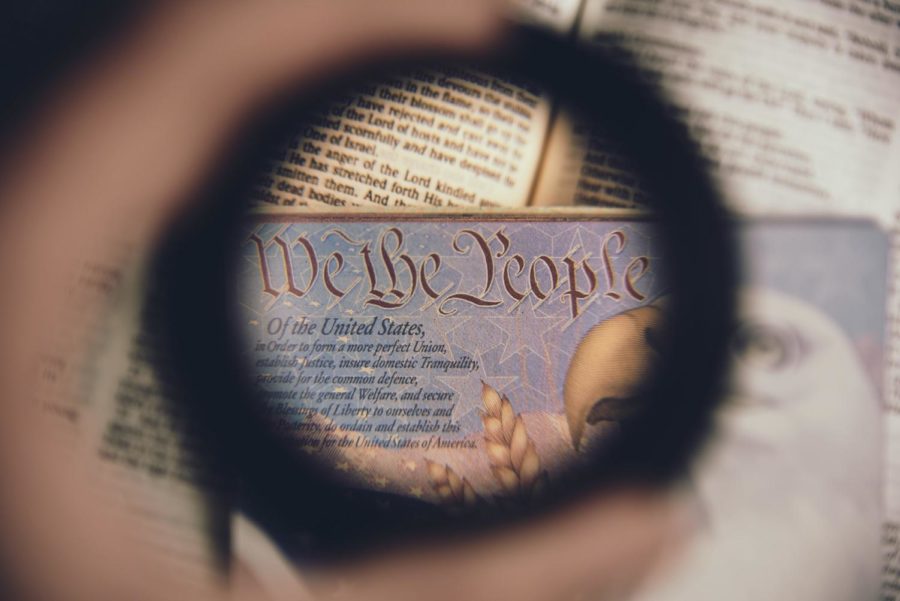Editorial: Checks and balances: the good and the bad
The ISD Editorial Board examines the impact of checks and balances on state and federal government during the COVID-19 pandemic.
October 4, 2021
Editor’s Note: Editorials are representative of the views of all Editorial Board members. One or two members will compile these views and write an editorial.
At the foundation of the American government lies a system of checks and balances designed to limit each part of the federal government. The legislative, judicial and executive branches must all work together to accomplish their goals and govern over the country. This system is imperative to the functioning of American democracy, but it doesn’t tell the whole story.
Checks and balances within the federal government came about as a response to the creation of a centralized government. For a short time, the United States was just that: a bunch of states, united in principle. The Articles of Confederation, created after the end of the Revolutionary War, originally created a very weak, but incredibly independent and free collection of states.
When the Constitution replaced the Articles, the Framers felt it especially important for this new federal government to have checks and balances within itself in addition to the checks and balances that existed from the other levels of government.
Make no mistake, checks and balances are important at the federal level, but the consolidation of each branch under a single political party threatens even the most well intentioned of systems. The checks and balances that state and local governments can exert on Washington provide a far greater level of security that the government will continue to work for the people.
Take Texas and Florida, for example. Each state has chosen to circumvent federal allocations of monoclonal antibody treatments for COVID-19. Why each of these states feels inclined to do so is not the subject of this editorial, nor is the federal government’s rationale about allocation of these treatments.
Monoclonal antibody treatments for COVID-19 have proven effective if administered to patients at a very early stage in the infection, but they are expensive, and they are limited in supply. As such, the federal government has tried to make these treatments as freely available as possible.
As states such as Florida and Texas started to need more and more of the treatments however, the federal government started to ration how many treatments each state could receive each week.
Highly political and always unproductive, arguments exist about why the federal government did this, but as stated earlier, that’s not the point of this editorial. This tension between the federal government and Texas and Florida highlight how each level of government can work with or against one another as either a check or a balance.
Assuming positive intent, the actions of each level of government are at least somewhat logical. Of course the federal government would want to manage the number of treatments being sent to each state rather than force states to fight one another for the treatments. That’s a job of the federal government: to oversee interstate commerce.
And of course states like Florida and Texas are going to want to fight for treatments. With the number of people falling ill and dying of COVID-19 in both of these states, it would be irresponsible of each state to not be doing everything in its power to get treatments.
These are natural responses from leaders tasked with serving different groups of people. At best, both levels of government work together, and at worst, they fight each other. Unfortunately, a global pandemic is about as far from “at best” as it gets.
The federal government along with Florida and Texas may have political motivations for their actions over the past couple of weeks. That’s irrelevant. Checks and balances add complexity and nuance to our government in a way that doesn’t benefit expedient government action even when we need it most.
In light of the pandemic, it is very much the right thing for the federal government to ration treatment across the country to ensure everyone has equal access, and it is equally the right thing for Florida and Texas to fight for every treatment they can get to help their populations fight the pandemic better than other states.

















